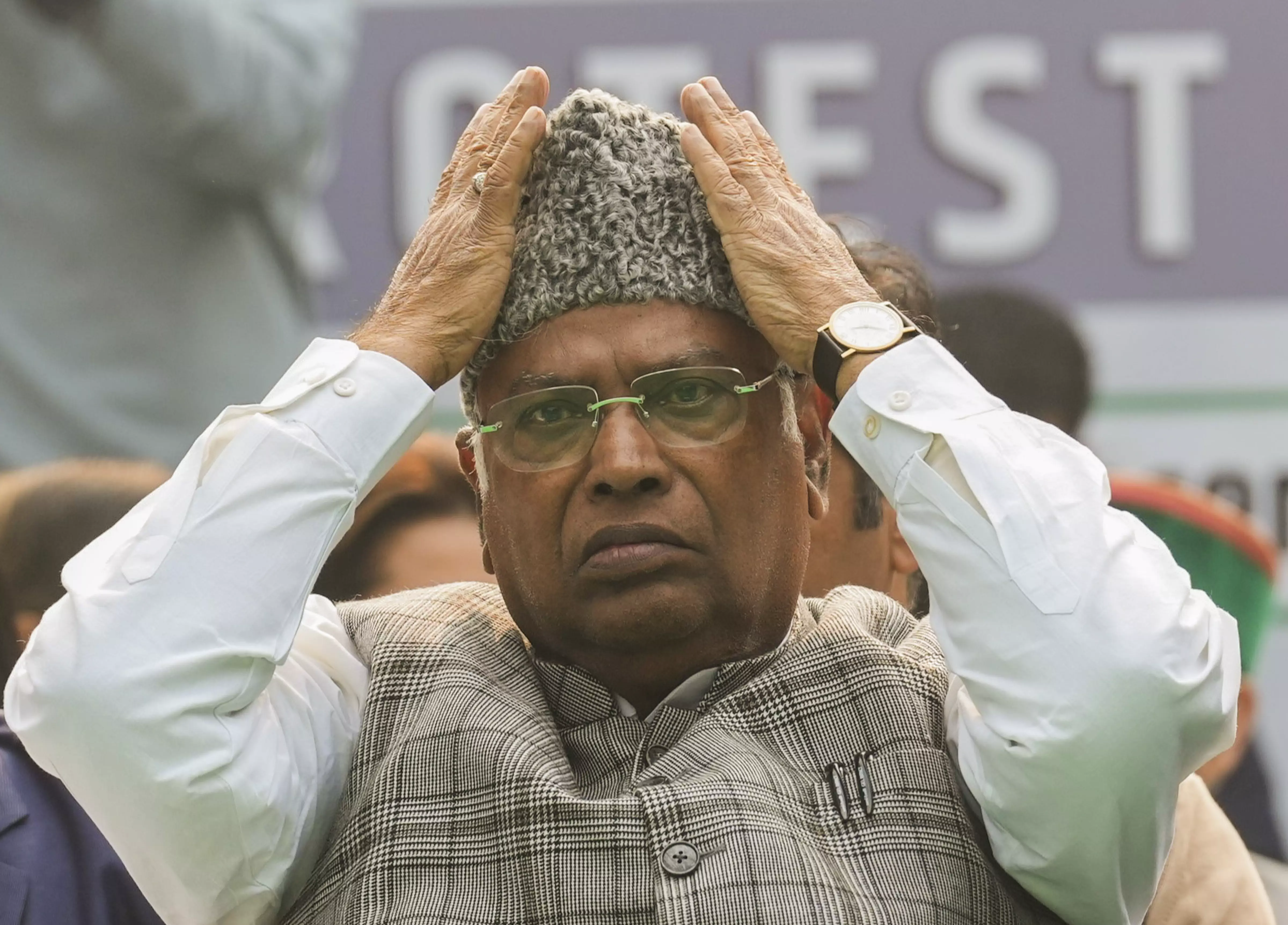
No Kharge; newbies: Is Congress’s Karnataka candidate list too risky?
Kharge told the media recently that he was 83 and it would be difficult for him to focus on other Lok Sabha constituencies if he was contesting from Gulbarga

The Congress in Karnataka, which has finally succeeded in zeroing in on 24 candidates for 28 seats, appears to be grappling with the challenge of identifying suitable candidates for four key constituencies, for which there are too many contenders.
As expected, All India Congress Committee (AICC) president Mallikarjun Kharge will not contest the Gulbarga seat, where his son-in-law Radhakrishna Doddamani has replaced him, revealed the third list of candidates released by the party on Thursday (March 21).
The party leadership has offered an explanation, but some leaders believe Kharge’s decision to not contest the polls will affect the outcome in the state, even if a little, considering his stature as a tall Dalit leader.
Kharge’s justification
A party leader who spoke to The Federal on condition of anonymity said this is the first time in the past 25 years that a Congress president is not contesting in the crucial Lok Sabha polls. Even Sonia Gandhi and Rahul Gandhi had contested the polls when they were heading the party.
“I won’t say Kharge’s reluctance to contest the Lok Sabha will make a big impact. But it may dent the party’s prospects to some extent,” he said. Kharge, who contested the Gulbarga seat thrice since 2009, won it twice (in 2009 and 2014) and lost once (2019).
Defending his decision against contesting in the Lok Sabha polls, Kharge told the media recently that he was 83 and it would be difficult for him to focus on other Lok Sabha constituencies if he was contesting from Gulbarga. He would contest only if the party high command insisted.
It seems the party high command bought his argument and decided against fielding him in the polls. Congress leaders from Karnataka wanted him to contest either from Gulbarga or Chamarajanagar. However, the party accommodated his son-in-law from Gulbarga and struggled to find a suitable candidate for Chamarajanagar.
Allegation of dynastic politics
One thing that stuck out like a sore thumb in the party’s third list of candidates — for 17 Lok Sabha constituencies in Karnataka among others — was the accommodation of the next generation of political families. This came despite the party’s earlier commitment to shun dynastic politics, as outlined in the Udaipur Nav Sankalp declaration.
Though party leaders are defending the decision, they have their fingers crossed on an experiment of fielding six women and a dozen first-timers. Interestingly, the Congress had fielded only one woman in 2019.
Party leaders have defended their decision by saying it is to woo the female electorate, especially the beneficiaries of the five flagship guarantee schemes in the state. According to Election Commission data, of the total electorate of 5,42,08,088, women number 2,70,81,750. Of the 28 constituencies, women outnumber men in 17 Lok Sabha seats.
The Congress experiment is seen as an attempt to counter the BJP’s focus on youth. If the first-timers get Kolar and Chikkaballapur tickets, the number of first-timers will rise to 15.
Unfazed Congress
The Congress is unfazed by the criticism of practising dynastic politics. PWD minister Satish Jarkiholi, whose daughter Priyanka Jarkiholi is contesting the Chikkodi seat, said, “Show me one party that is not practising dynastic politics. What are Yediyurappa and Deve Gowda doing in Karnataka? Are they not practising dynastic politics?”
Party president DK Shivakumar has a different take on the issue. He claims that the political system in the country has changed over the years.
“We are looking at new faces, especially youngsters. The criteria are that they should have a solid political background and have the capacity to win elections. All the local leaders are supporting ministers’ children, as they have been working for the party for long, as office bearers,” he argued.

